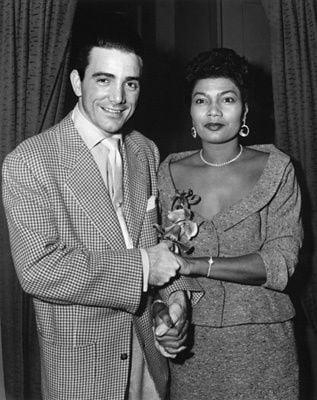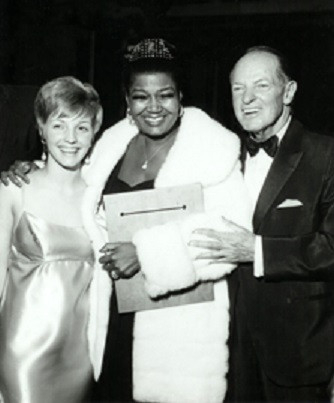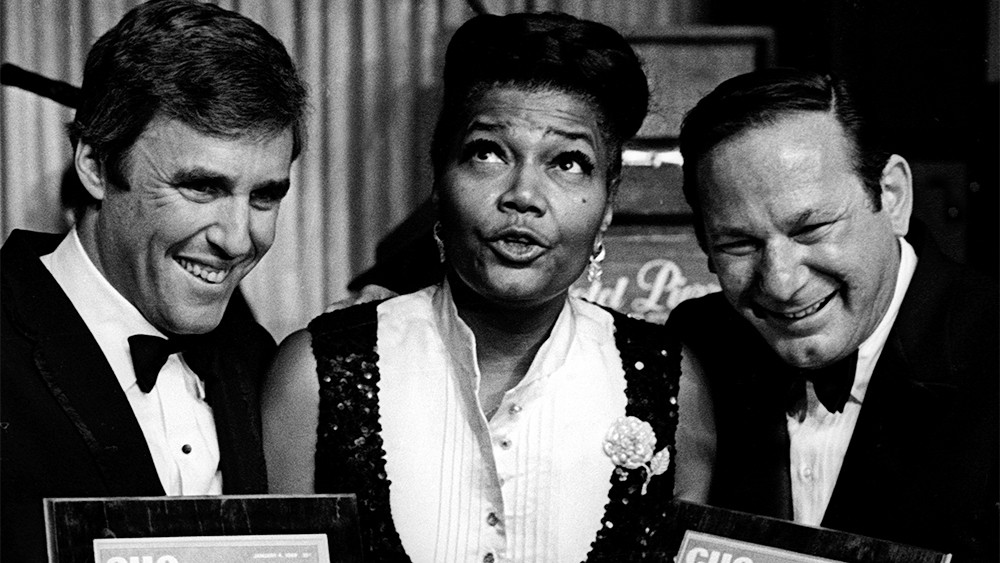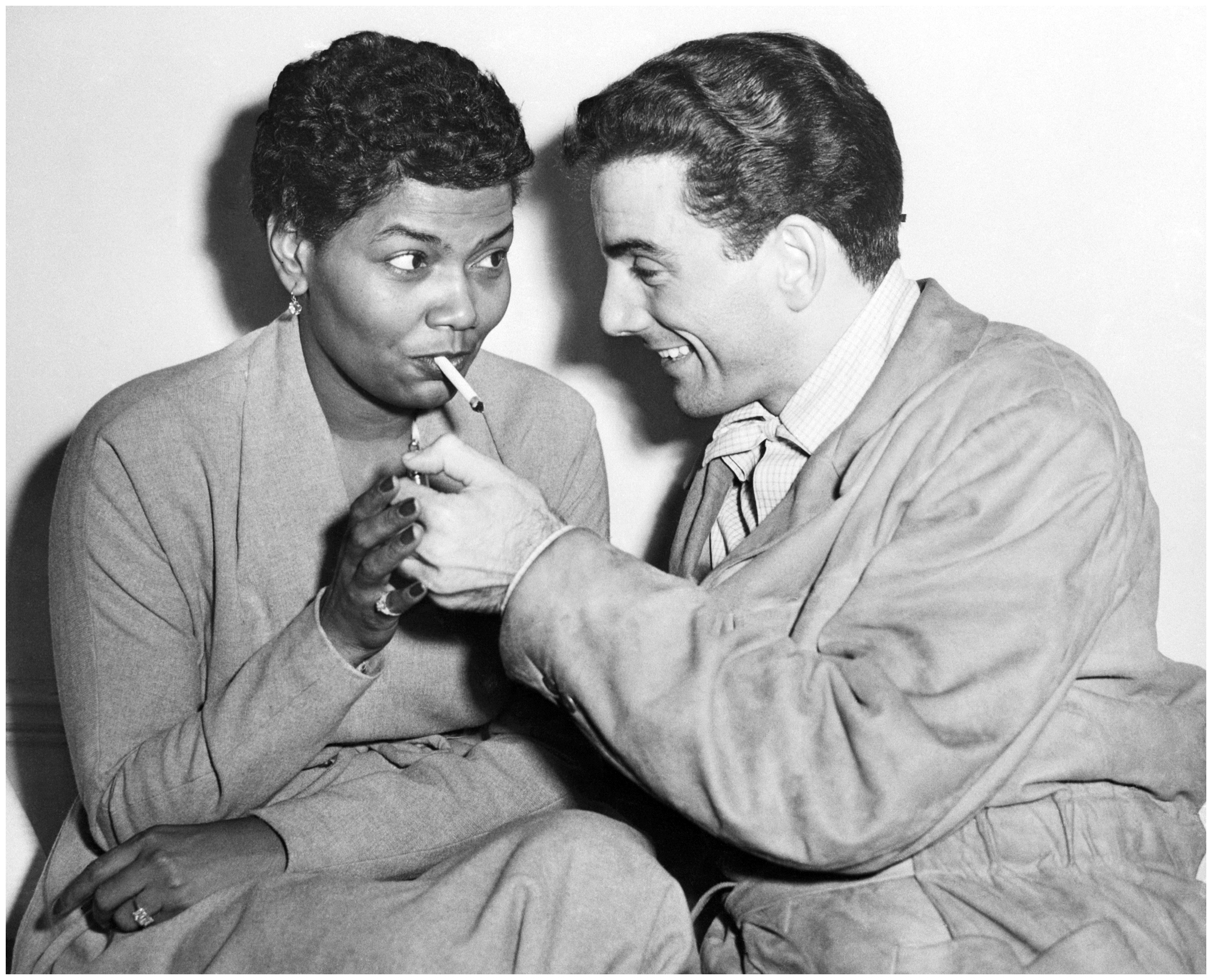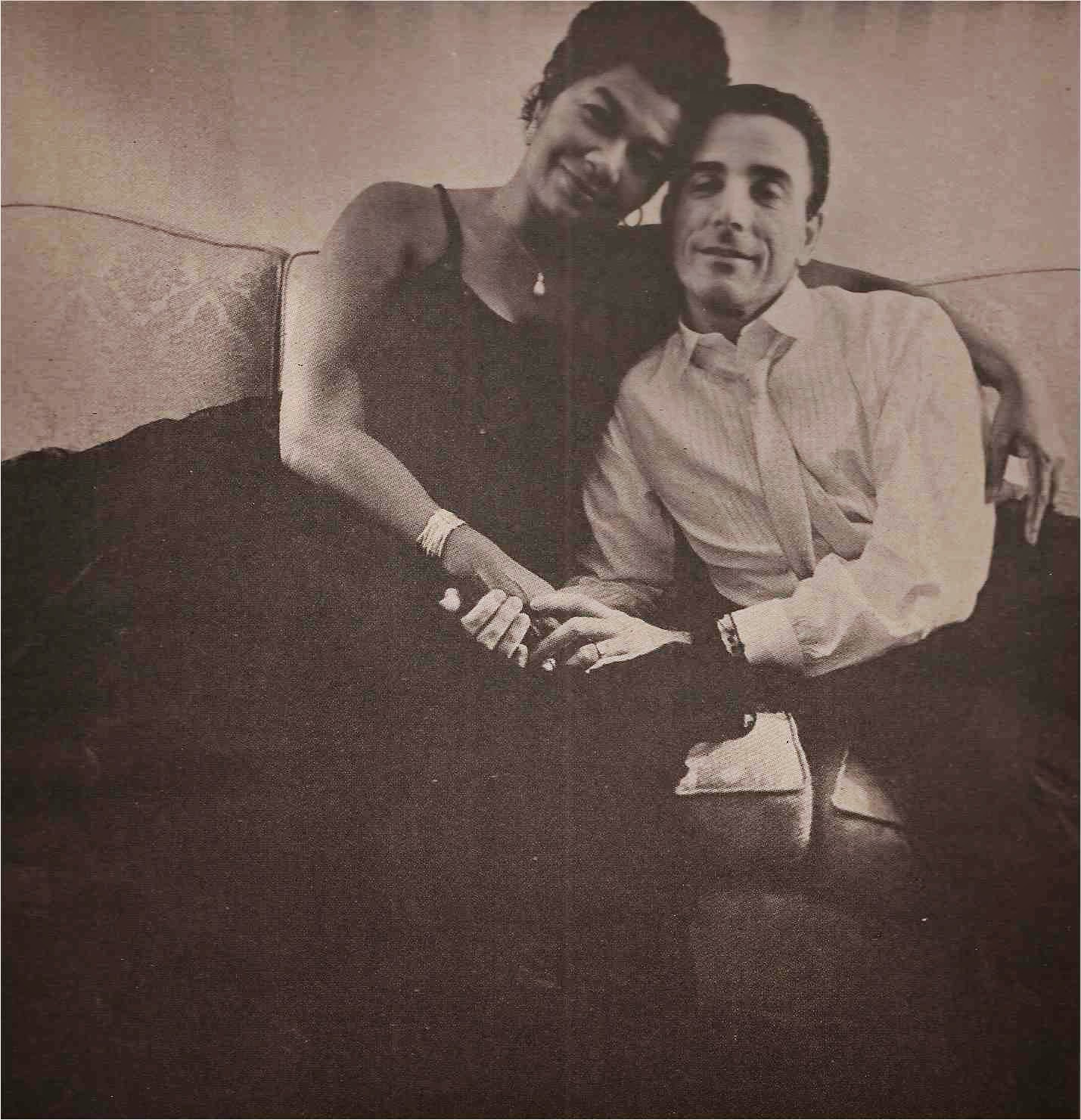Pearl Bailey, Musical Star, and Humorist, Is Dead at 72
By John S. Wilson
Aug. 19, 1990
The New York Times Archives
Pearl Bailey, the entertainer whose distinctive singing style was enhanced by her mischievous witticisms and warm personality, died on Friday at Thomas Jefferson University Hospital in Philadelphia after collapsing at a hotel where she had been staying.
She was 72 years old and lived in Lake Havasu, Ariz.
The cause of death was not immediately known. Miss Bailey had a long history of heart ailments and was recovering from knee surgery. A spokeswoman for the hospital, Elizabeth Samuels, said an autopsy was being conducted to determine the cause of death.
In a stage career that began in 1933 when she won first prize at an amateur night in Philadelphia and reached a peak with her 1967 starring role on Broadway in an all-black version of the musical ''Hello, Dolly!'' with Cab Calloway, Miss Bailey said she thought of herself as a singer and not an actress.
'I Tell Stories to Music'
''I'm not a comedienne,'' she told an interviewer some years ago. ''I call myself a humorist. I tell stories to music and, thank God, in tune. I laugh at people who call me an actress.''
Her trademark was a warm, lusty singing voice accompanied by an easy smile and elegant gestures that charmed audiences and translated smoothly from the nightclub stage and Broadway to film and television.
On stage, her ample figure, often swathed in fur and sparkling with rhinestones and jewels, was a magnet for audience attention as she tossed off a ballad in throwaway style.
''I've lost one of the greatest friends I've ever had in my life,'' Mr. Calloway said after learning of Miss Bailey's death. ''I've lost a co-worker and a wonderful person.''
Carol Channing, who had created the role of Dolly Gallagher Levi in the musical three years before Miss Bailey undertook the part, said: ''The entertainment world has lost one of its most creative performers of our time. Her talent was unique and enduring.''
Miss Bailey's husband, the jazz drummer Louis Bellson, to whom she was married for 38 years and who went with her to the hospital on Friday, said simply, ''I've lost my best friend.''
The singer had left the hospital on July 30 after undergoing surgery to replace her arthritic left knee with a metal and plastic joint. She was staying at a local hotel during a series of physical therapy sessions. Her two sisters live in Philadelphia.
Mr. Bellson said they had been planning a visit to New York, where Miss Bailey was to give an address at the United Nations on Aug. 24.
Distinctive Vocal Timbre
''If I just sang a song,'' Pearl Bailey once said when she had been drawn into an analysis of her performing style, ''it would mean nothing.'' That is a debatable point. Her voice had a distinctively warm timbre and her natural vocal inflection was filled with fascinating colors and highlights.
Like Jelly Roll Morton, the great jazz pianist, who was fond of saying that he changed everything he played ''to Jelly Roll'' (as, in truth, he did), everything Miss Bailey sang came out ''Pearlie Mae style.'' This included the so-called risque songs that were a staple of her nightclub acts or the songs she sang in ''Hello, Dolly!'' ''House of Flowers,'' ''St. Louis Woman'' and other Broadway musicals.
In truth, Miss Bailey never ''just sang a song.'' The stage Pearl Bailey was a close reflection of the private Pearl Bailey.
She was a trouper in the old theatrical sense. She had a fierce pride in the level and consistency of her performance, no matter what the circumstances. She was disturbed to see this quality going out of show business, and she sometimes talked of forming a troupe - she still thought of it as a vaudeville act long after there were no more vaudeville theaters where it could play - through which she could instill the old discipline of trouping in promising young performers.
Tall, buxom, exuberant, and handsome, Pearl Bailey enraptured theater and nightclub audiences for a quarter-century. Her talents as an actress and singer were perhaps best blended in her role as the bumptious amateur matchmaker in ''Hello, Dolly!'' which she played on Broadway for two years.
At one point, the show went to Washington, and President Lyndon B. Johnson attended a performance. Waving to him at the curtain, Miss Bailey brought the house down with the remark, ''I didn't know this child was going to show up.''
Then she brought him on stage for a sing-along chorus of the title song.
It was probably the first time that a President of the United States served as a chorus boy.
Best in Nightclubs
In films, she was celebrated chiefly for two roles - Maria in ''Porgy and Bess'' and Frankie, a roadhouse girl, in ''Carmen Jones.'' But Miss Bailey's gifts were best savored in the nightclub, where she was able to establish a marked degree of intimacy with her audiences. There her digressions enhanced her songs.
Among her best-known songs were ''Tired,'' ''Two to Tango,'' ''Birth of the Blues,'' ''Toot Toot Tootsie, Goodbye,'' ''Row, Row, Row,'' ''That's Good Enough for Me'' and ''15 Years.''
Miss Bailey had a bluntness that some found disconcerting. Once President Richard M. Nixon invited her to the White House and asked her to become his ''ambassador of love.'' In her account of the colloquy that followed, Miss Bailey reported: ''I don't join anything. I'm not a member of anything and I don't pay dues.
''I told Mr. Nixon I will do anything for my country. But no one can use me. I don't want to be used. And I said to him that when I go out among the people and they see me, they'll say, 'My lord, they sent Pearlie Mae,' and they'll think, 'Somebody must be trying to do something.' ''
Criticism on All-Black Casting
Miss Bailey was equally straightforward with those who criticized her because the cast of her ''Hello, Dolly!'' was all black. ''I wasn't hired to do an all-colored 'Dolly.'
It was just one of those things,'' she said.
''A lot of talented people showed up and what's wrong with them having a job?
What is good for the Negro? What is good for the Negro is good for every man.
Every man has a place in this world, but no man has a right to designate that place.''
Although Miss Bailey was sometimes bewildering in her conversation, there was rarely any doubt about her warmth. ''I love people; they can have everything I've got,'' she said. At the same time, she disliked ''all this kissin' and greeting in the theater.''
Part Indian Ancestry
Pearl Mae Bailey was born on March 29, 1918, in Newport News, Va., the youngest of four children of black and Creek Indian ancestry. Miss Bailey's parents were divorced when she was a child, and her mother remarried and moved to Philadelphia.
Her only brother, Willie, was a tap-dancing protege of Bill (Bojangles) Robinson and performed for a time as Bill Bailey. He once chased her from the theater where he was rehearsing, and to get back at him, Miss Bailey, at 15, entered an amateur contest. She sang ''Poor Butterfly'' and ''Talk of the Town'' and did a tap dance, and won first prize.
For several winters she worked for $15 a week and tips as a singer and dancer in small clubs in the coal-mining section of Pennsylvania. One summer, on a visit to Washington, Miss Bailey devised a dance act that won a $12 prize and led to other engagements.
Her first New York appearance was in 1941 at the Village Vanguard. She sang briefly with the Sunset Royal Orchestra and with Count Basie's band, and for two years, 1943-44, toured with Cootie Williams's band. In 1944 she was booked into the Blue Angel, a prestigious New York supper club, for two weeks.
Her performance, particularly her amusing version of ''Tired,'' won glowing notices, and she stayed at the club for eight months. Columbia Records put her under contract - ''Tired'' was one of her first releases - and she made a theater tour with Cab Calloway's orchestra.
New York theatergoers first saw her in 1946, in the musical comedy ''St. Louis Woman,'' singing ''Legalize My Name'' and ''A Woman's Prerogative.'' She won the Donaldson Award as the Most Promising New Performer of 1946 for her performance. Later Broadway roles included ''Arms and the Girl,'' ''Bless You All'' and ''House of Flowers.''
In addition to ''Carmen Jones'' and ''Porgy and Bess,'' she appeared in the films ''Variety Girl,'' ''Isn't It Romantic,'' ''Father's Day,'' ''That Certain Feeling'' and ''St. Louis Blues.''
From 1946 on she was a top attraction in nightclubs and variety houses and on television in the United States and Britain. Her act changed relatively little from year to year, and always retained some early successes, including ''From Mouton to Muskrat to Mink'' - a perennial favorite.
Miss Bailey received a special Tony Award in 1968 for her performance in ''Hello, Dolly!''
Besides Mr. Bellson, Miss Bailey is survived by a son, Tony, and a daughter, Dee Dee, both of Los Angeles, and by two sisters, Eura Robinson and Virgie Murray, both of Philadelphia.
Funeral arrangements had not been made yesterday, but Miss Bailey's road manager, E. B. Smith, said she would be buried in Philadelphia, next to family members.
ADVERTISEMENT
BY
Looking for more information?
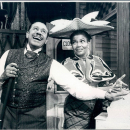
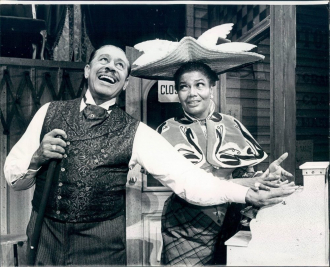
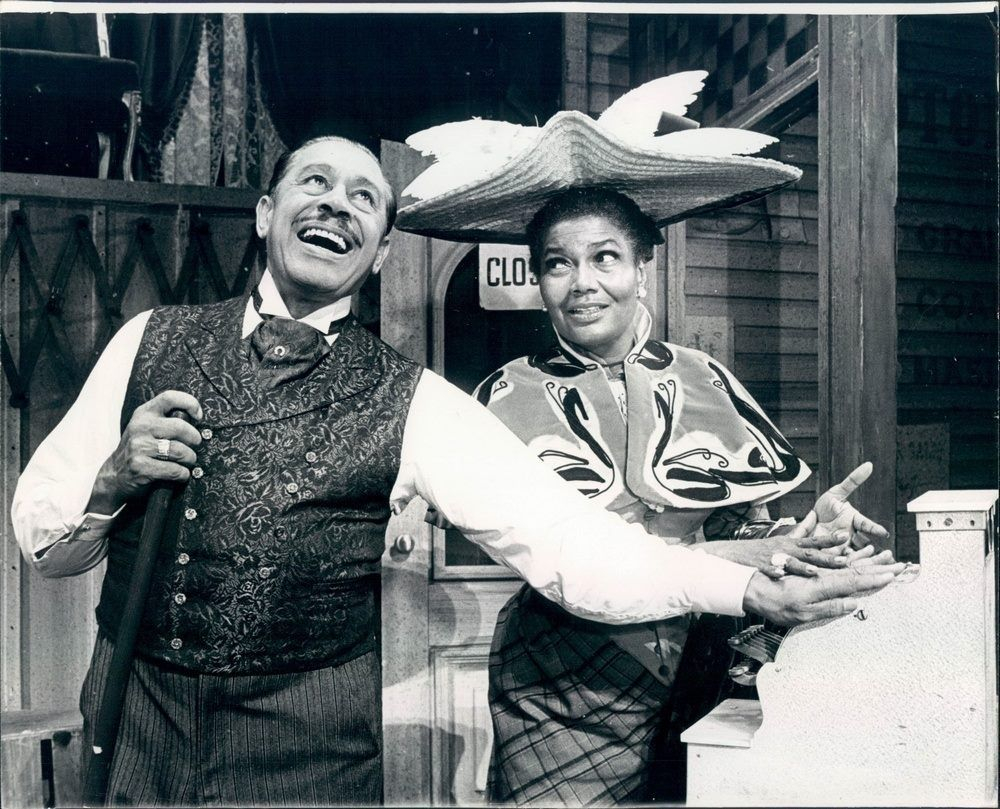
 Amanda S. Stevenson
Amanda S. Stevenson 